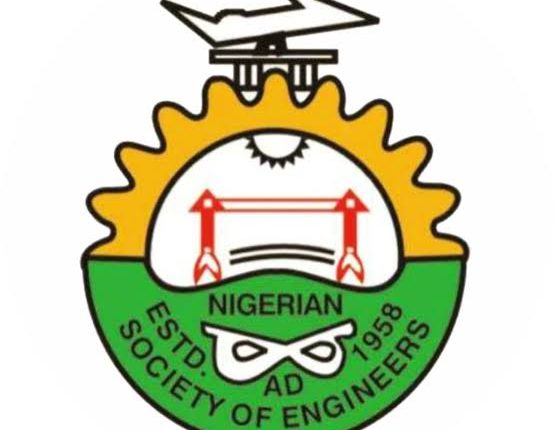The Nigerian Society of Engineers, NSE, has advised the government to safeguard policies that affect the manufacturing industry in the country from political influence, as it seeks a review of current laws to enhance the growth of the manufacturing sector.
This was one of the recommendations in the communique that was released by the professional body following the completion of its Annual General Meeting which had the theme “Re-Engineering the Manufacturing Sector for Competitiveness and Enhanced Economic Growth”.
The NSE President, Mr. Tasiu Sa’ad Gidari-Wudil presented the communique at the Society’s Headquarters in Abuja.
He added that the Conference, after multiple paper presentations and discussions identified issues such as stringent and inconsistent government policies, funding, innovation and skill gaps, infrastructure deficit, power, amongst others as challenges affecting the manufacturing sector.
The NSE President said the conference arrived at several resolutions that would revive Nigeria’s Manufacturing sector.
“Conference recommends that government and relevant stakeholders (the Manufacturing Association of Nigeria (MAN), banks, international development partners, professional bodies, etc.) as a matter of urgency should embark on comprehensive review of existing policies, with focus on simplifying regulatory processes, providing incentives for innovation, infrastructural upgrade and ensure consistency to foster an enabling environment for manufacturing growth.
“Conference recommends that government in collaboration with relevant stakeholders incentivize technology adoption, provide subsidies for acquiring advanced machinery, establish technology hubs to facilitate knowledge transfer, create manufacturing clusters and encourage synergy between academia and industry.
“Government should provide enabling policies and enforcement that ensure transparency in regulations impacting manufacturing, simplify regulations and procedures under “Made-in-Nigeria” products, set stable, long-term policies on tariffs.
“Green energy remains the only possible way to address both the energy shortage and at the same time ensure sustainability. Thus, conference urges the government and relevant stakeholders to properly harness, manage and commercialize appropriate energy mix as well as develop guidelines for eco-friendly production and the promotion of green certification for the manufacturing sector.
“Government (MDAs, educational institutions, research institutes, etc.) and other relevant stakeholders (the organized private sector, donor agencies, civil society organizations, professional bodies, etc.) should, as a matter of policy, increase investments directed at education and training programmes to equip the workforce with the required skills needed by the evolving manufacturing sector.
“Conference recommends that government should collaborate with regional and continental bodies (e.g., African Continental Free Trade Area (AfCFTA) on the need for strategic alliances, trade agreements, and export diversification to enhance the competitiveness of Nigerian manufactured goods on the international stage.
“Conference recommends synergy amongst government, organized private sector and other relevant stakeholders for innovative financing mechanisms, such as venture capital, public-private partnerships, soft loan and tax incentives for investments in manufacturing to attract the necessary capital for sectoral modernization, research and development, and technology acquisition.
“Conference recommends that the government should make deliberate and sustainable efforts geared towards achieving full reactivation, rehabilitation and modernization of Ajaokuta Iron and Steel Complex for sustainable industrial growth and development.
“Government and relevant stakeholders should develop policies and incentives that specifically target rural MSMEs, such as tax breaks, subsidies, and grants for start-ups, simplify and streamline bureaucratic procedures for business registration, licensing and compliance, encourage private sector to collaborate with Civil Society Organization to leverage their resources, expertise, and networks in supporting rural MSMEs.
“Government and relevant stakeholders should pre-select and prioritize dominant economic activities in designated rural areas with comparative advantage, identify the value chains, develop proper and sellable business cases and plans that explicitly illustrates financial and economic opportunities for pursuing them and assisting with appropriate interventions” he said.
Mr. Gidari-Wudil added that the communique will be expanded in details and presented to the President.
He said the Nigerian Society of Engineers is willing to work with the government to ensure the development of Nigeria.

